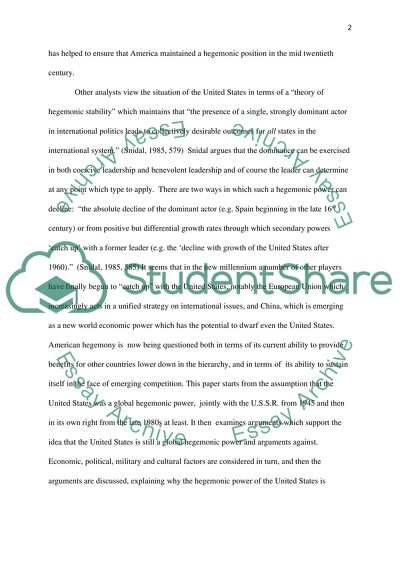Cite this document
(“Is the US still a global hegemonic power Essay Example | Topics and Well Written Essays - 3500 words”, n.d.)
Retrieved from https://studentshare.org/environmental-studies/1422248-is-the-us-still-a-global-hegemonic-power
Retrieved from https://studentshare.org/environmental-studies/1422248-is-the-us-still-a-global-hegemonic-power
(Is the US Still a Global Hegemonic Power Essay Example | Topics and Well Written Essays - 3500 Words)
https://studentshare.org/environmental-studies/1422248-is-the-us-still-a-global-hegemonic-power.
https://studentshare.org/environmental-studies/1422248-is-the-us-still-a-global-hegemonic-power.
“Is the US Still a Global Hegemonic Power Essay Example | Topics and Well Written Essays - 3500 Words”, n.d. https://studentshare.org/environmental-studies/1422248-is-the-us-still-a-global-hegemonic-power.


